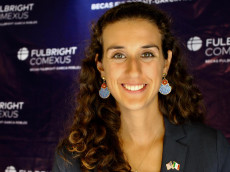Yesterday, I went to get my hair cut in downtown Gloucester, Massachusetts, a blue-collar fishing town on Cape Ann where I am spending the summer, as I have for the last 24 years.
The inside of the salon was dingy, dark, and dirty, yet the middle-aged, heavy-set woman who greeted me lit up the place with her warmth. As soon as she finished cutting the white hair of an older man, she turned to me, pointing me towards a swivel chair next to the sinks. We were the only people inside the vast shop, creating an eerily intimate atmosphere that seemed to mirror my inner state. As she started to dye my hair, the woman and I got to talking. Our conversation quickly flowed from banal chat to discussion of the state of the pandemic.
“Did you get it?” I asked her.
“I got it on Valentine’s day!” she began.
“I had it in January!” I immediately replied, with a newfound empathy for this stranger. There is something unique — intimate even — about sharing one’s experience with COVID with another person who also got sick from the virus. It almost feels like you’re in on a secret; you both understand the virus as a tangible sickness rather than an abstract disease.
I told her about my bout with the illness, and how, despite my best efforts to protect my 89-year old grandmother, whom I was living with at the time, she nonetheless came down with the virus. She eventually had to receive IV antibodies at home to recover.
The hairdresser expressed her sympathies and her obvious joy at the fact that both I and my grandmother fully recovered.
She went on to tell me that she and her husband had been traveling back and forth between Massachusetts and Florida at the beginning of the year. When they went down to Florida for a brief period, they had dinner with their neighbor, who neglected to let them know that just the previous day he had gone to a maskless conference. He ended up coming down with COVID, and, naturally, infecting the hairdresser and her husband. For weeks the neighbor refused to believe that he had a severe case of COVID, instead blaming his illness on the flu. The hairdresser’s husband, too, refused to acknowledge the severity of his symptoms. Frustrated with his refusal to go to the emergency room, the hairdresser flew back to Massachusetts. Unable to sleep that night, she called her husband at two in the morning, and ordered him to get into the ambulance. Unable to breath, he finally consented.
Her husband was on life support for three months. He could not breathe, so he received oxygen from a ventilator. Then, his liver and kidneys started to fail. His heart followed. The doctors gave him a next-to-nothing chance of survival.
Nonetheless, he stayed alive. After three months in the hospital, in May, he was finally released with an extremely expensive medical bill, and permanently damaged lungs and kidneys, as well as a permanently damaged heart and liver. To this day, he continues to receive care from home, and doctors are not sure why his health continues to deteriorate. The medication he takes for his heart severely harms his kidneys and liver, and vice versa. He is a mess.
The hairdresser is desperate for some good news. She’s tired of going from doctor to doctor without a concrete explanation or solution. She’s physically and emotionally drained, because despite her best efforts, COVID continues to kill her husband.
On top of that, her autistic granddaughter is struggling with online learning, and she fears that if classes are not in person, she will continue to fall through the cracks. Her daughter, the mother of the autistic girl, refuses to advocate on her daughter’s behalf — in fact, she will not get vaccinated because she does not trust the rapidity with which the vaccine was released, despite witnessing what COVID has done to her father.
The hairdresser feels like her husband is invisible; she feels like her granddaughter is invisible; she feels invisible.
For that reason, she tells me, overcome with desperation and anger: “I can’t stand when people say ‘white privilege.’ Look at us! We are suffering.”
The pandemic has wreaked havoc on so many people in so many ways all over the world. As the world reels from the Delta variant, let’s not forget the human toll that this virus has taken. We must work together across racial, ethnic, socio-economic, and national divides to develop solutions that prioritize the wellbeing of people.
Posted By Anna Braverman
Posted Aug 13th, 2021

